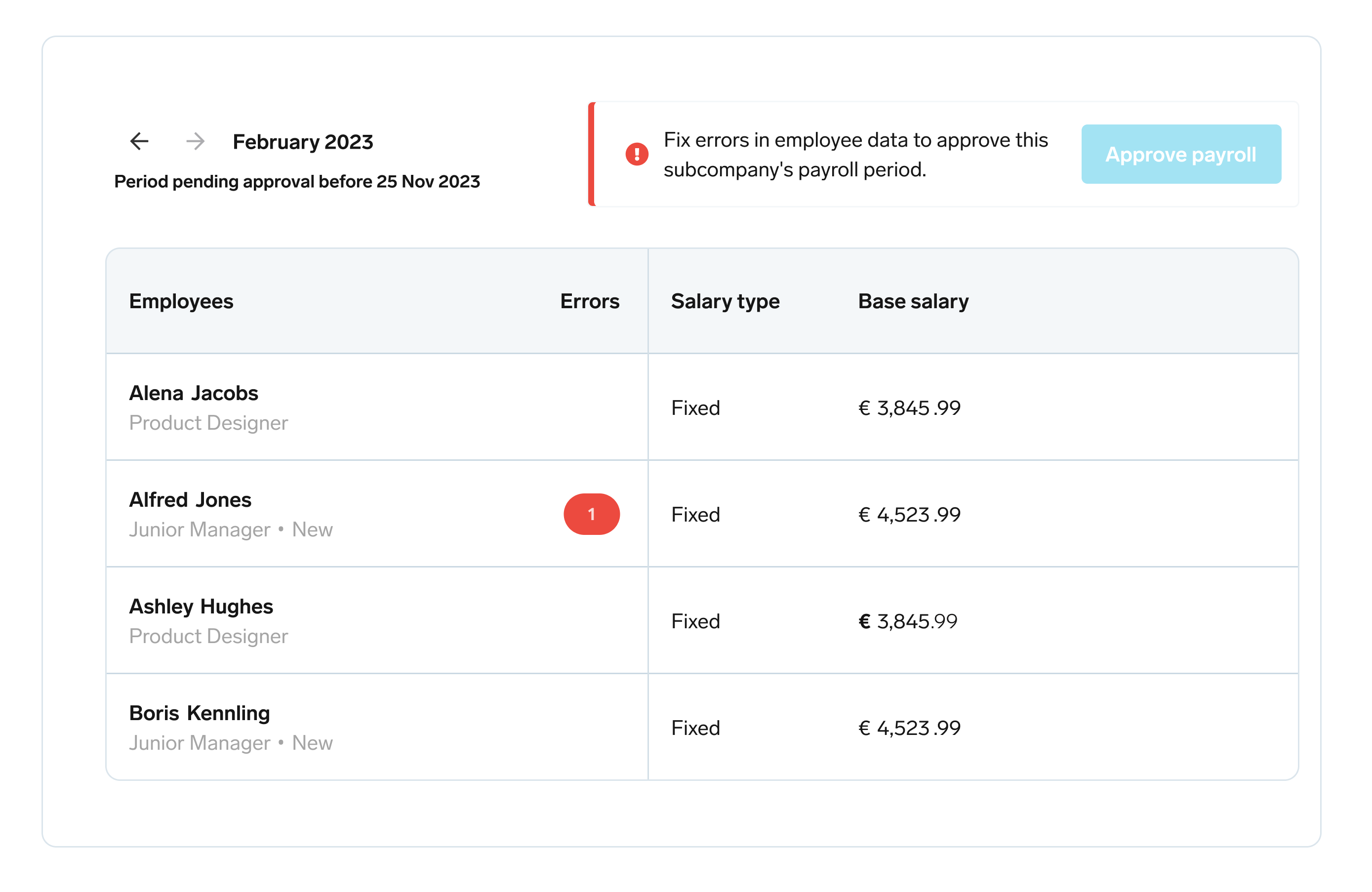
Start simplifying your payroll management
Learn how to streamline your payroll process to save time and ensure accuracy.
Read our guideEqual Pay: Definition and Best Practices

In this article, we provide a comprehensive guide on equal pay and show you how to ensure that you offer your employees a fair wage for their work.
Key Facts
The Equality Act enacted equal pay in UK workplaces in 2010; non-compliance can result in severe financial penalties.
Providing equal pay keeps you out of legal trouble while boosting the reputation of your business.
Creating and maintaining an equal pay policy is one of the best ways to ensure equal pay.
What Is Equal Pay in the UK?
Equal pay means that all employees must receive the same wages for equal work as set out by the Equality Act in 2010. Not only does this act cover pay, but also all contractual terms associated with the job. For example, a man and a woman under this act would receive the same pay and benefits, such as access to pension schemes or overtime rates.
Equal Work and Pay Differences
Under the Equality Act, there are three kinds of equal work that a company must track:
Like Work defines work that is the same or similar. Men and women perform essentially the same tasks involving the same knowledge with only minimal differences in responsibilities.
Work Rated as Equivalent is work that’s been rated by a valid job evaluation scheme as equally demanding on men and women.
Work of Equal Value is work that isn’t similar or equivalent but is of equal value to the company in terms of demand or effort.
Why Is Providing Equal Pay Important?
Providing equal pay keeps your business in compliance with the law and helps you avoid hefty legal fees and a loss of reputation for your brand. On a broader level, implementing equal pay helps close unjustifiable pay gaps between genders and contributes to a fairer society.
However, fair wages also directly benefit your organisation by sending a positive message about your organisation’s values to the public.
Your employees will also appreciate the effort, which may lead to increased engagement with your organisation’s goals and higher productivity across the board.
Ensure a Higher Employee Engagement

Motivate your employees with regular, transparent feedback and make them more productive.
Learn more hereKey Components of a Fair Pay System
Maintaining equal pay within your organisation from top to bottom often requires a fair pay system which consists of the rules and policies that govern fair wages. Core components of a good fair pay system include:
Creating an Equal Pay Policy. An equal pay policy is a written statement that reinforces your company’s dedication to providing a fair wage while outlining how you intend to maintain that payment scheme.
Ensuring Job Descriptions Are Clear. Transparent and unbiased job descriptions are necessary to accurately evaluate whether two different positions are equal.
Going Through a Job Evaluation Scheme. A job evaluation is meant to determine whether you’re providing equal pay for equal work. Your company should make its evaluation process as objective as possible to accurately assess and compare the demands of multiple positions.
Examining Your Grading and Payment Structures. If your company has grouped its positions into grades to equalise pay, those grades should be reevaluated regularly to maintain fair wages across the board.
How Can You Ensure You’re Providing Equal Pay?
To avoid legal and financial consequences for your company, it’s important to consistently verify that there aren’t any unjustified pay gaps in your workforce. Some things you can do to help ensure that no wage issue slips through the cracks are:
Create and stick to your equal pay policy, reviewing it frequently and revising it when necessary.
Ensure that men and women doing equal work don’t have different job titles.
Make sure that the description of each role is clear and accurate to the amount of work an employee will do.
Have a consistent pay structure across your workforce and limit who can decide salaries.
Frequently Asked Questions About Equal Pay
What Is the Equal Pay Act?
The equal pay act was enacted in the UK in 2010 to enforce fair wages and equalise company benefits across genders.
How To Provide Equal Pay?
To ensure that your organisation is providing equal pay to the employees, you should:
Create an equal pay policy
Ensure job descriptions are clear, accurate and do not show bias
Limit the people in your organisation who can decide on salaries
Ensure men and women don’t have different titles while performing the same work
How To Ensure Equal Pay With Personio
The larger your company gets, the harder it can become to keep track of payroll and ensure that it’s fair. Thanks to Personio’s payroll accounting features, you can see important salary data and find unjustified pay gaps faster than ever.
Book your free demo to learn how Personio can help you upgrade your people operations for now and into the future.
Disclaimer
We would like to inform you that the contents of our website (including any legal contributions) are for non-binding informational purposes only and does not in any way constitute legal advice. The content of this information cannot and is not intended to replace individual and binding legal advice from e.g. a lawyer that addresses your specific situation. In this respect, all information provided is without guarantee of correctness, completeness and up-to-dateness.
